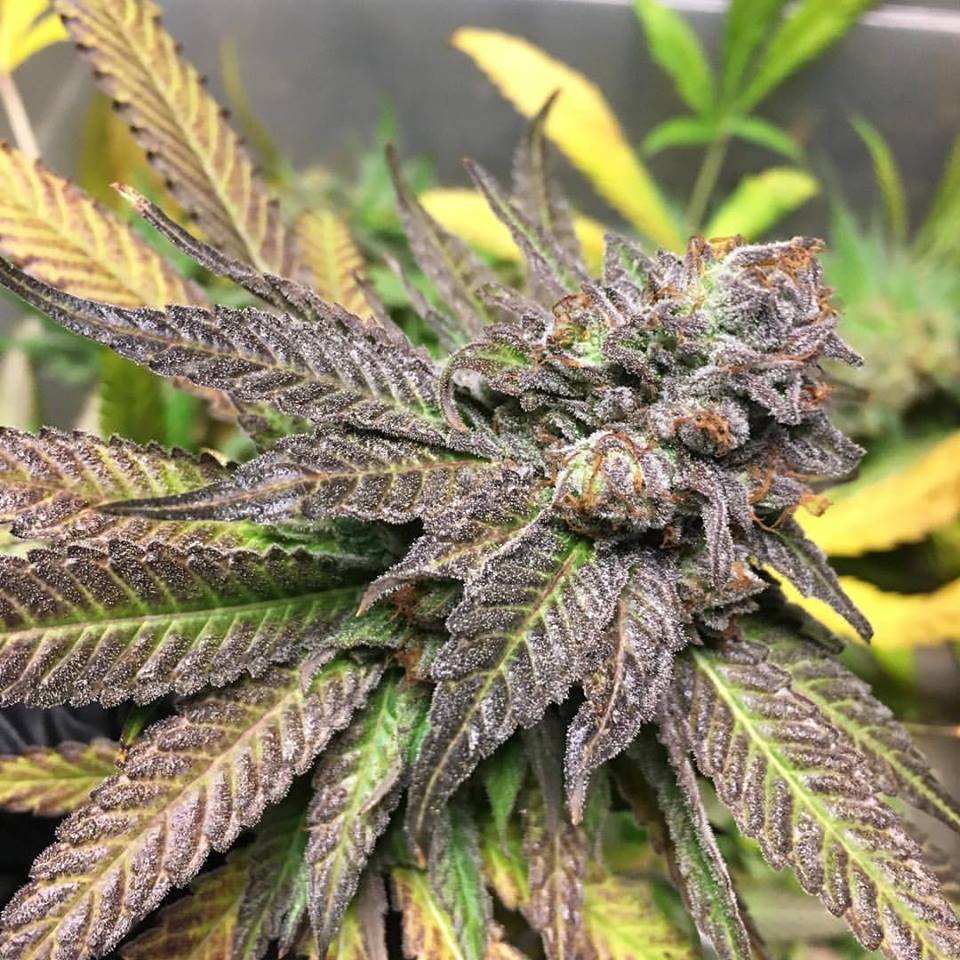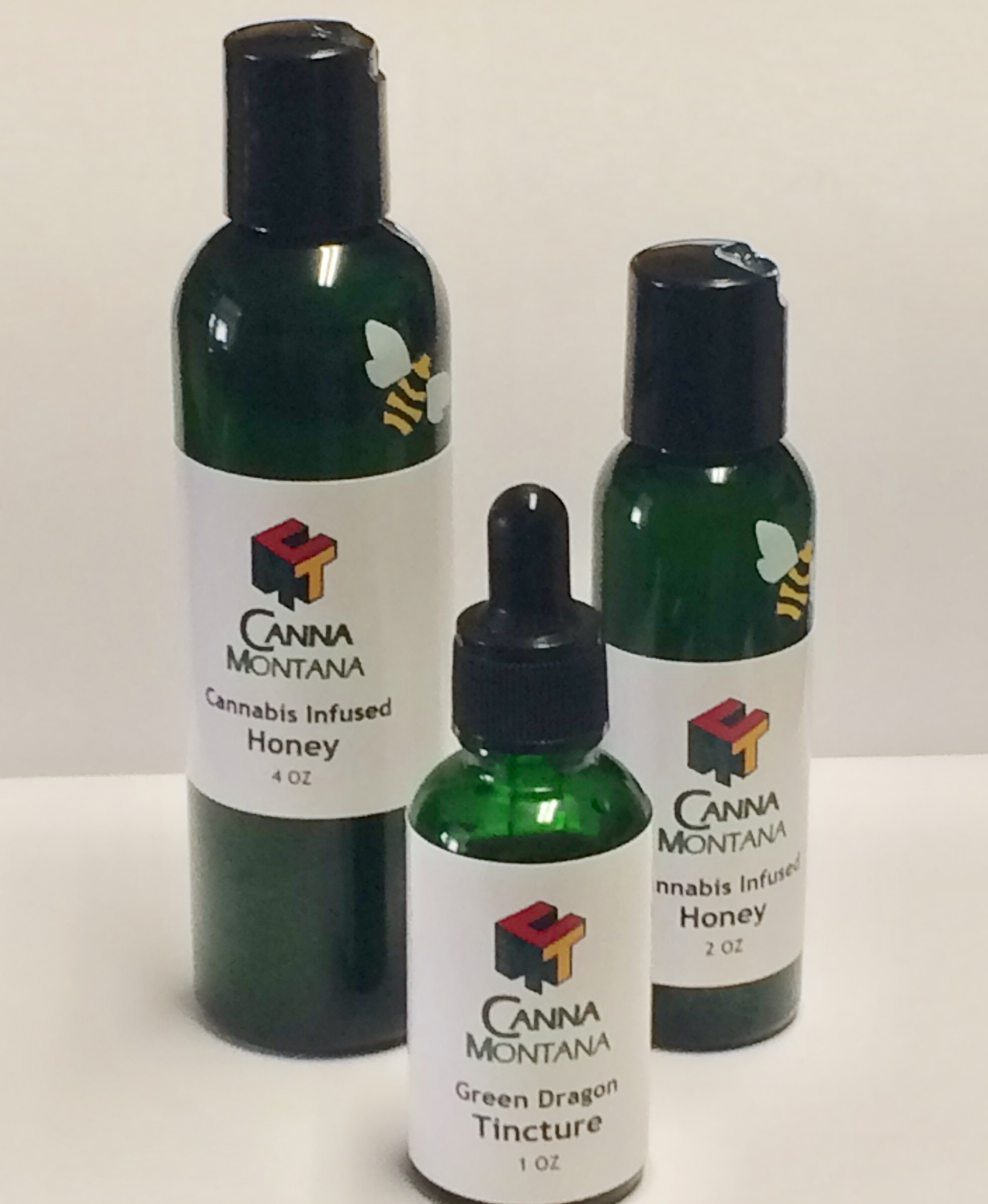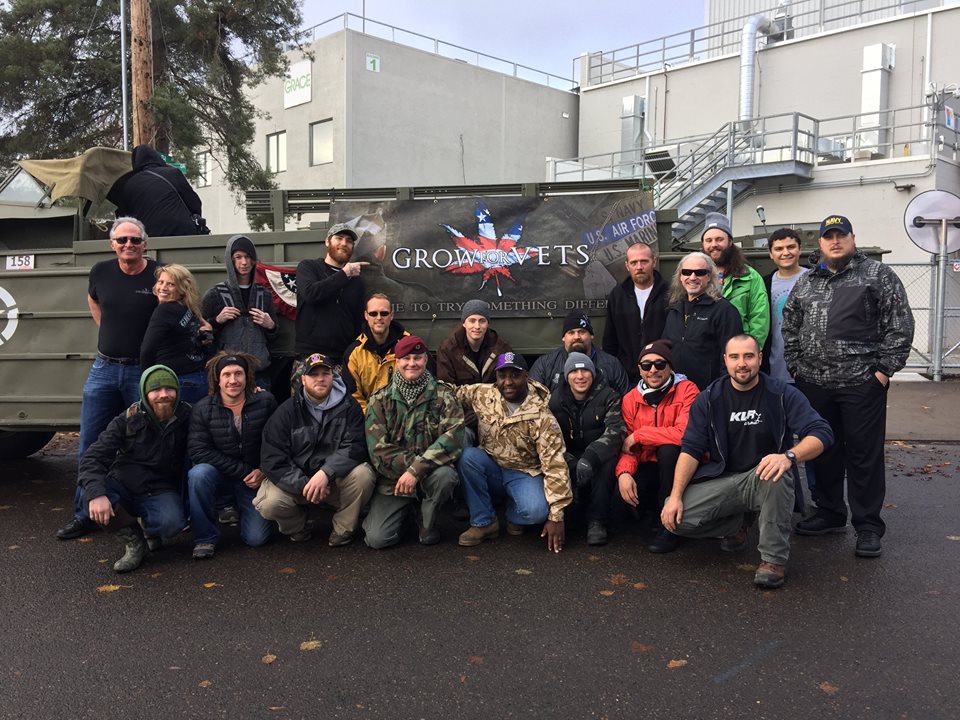Pot for PTSD? How Cannabis effectively treats PTSD.
What is PTSD?
According to the
National Center for PTSD
Posttraumatic stress disorder (PTSD) is a mental health problem that some people develop after experiencing or
witnessing a life-threatening event, like combat, a natural disaster, a car accident, or sexual assault. After a
traumatic event, it is normal for everyone to feel upset, on edge, and have trouble sleeping, but for most people
these symptoms start to decline over time and after a few weeks or months we start to feel better. For people who
suffer from PTSD the suffering continues and can even get worse with time.
Hypervigilance, always being on the lookout for danger and in a constant state of fight-or-flight, can make simple
tasks like walking through a crowd overwhelming. As if this wouldn’t be bad enough, it can lead to exhaustion,
anxiety, irritability, trouble concentrating and other debilitating conditions. Dr. Kerry Ressler of Emory
University describes PTSD as “an overactivation of the fear system that can’t be inhibited.” In other words,
the PTSD brain can’t get out of overdrive. (
Newsweek)

How Does Cannabis Treat PTSD?
Cannabis affects PTSD in multiple ways. First, a
study published in Molecular Psychology found that people who suffer from PTSD have a 58% reduction in
Anandamide, a neurotransmitter within our body’s endocannabinoid system. Anandamide is associated with mood,
stress-induced anxiety, regulation of pain and inflammation, appetite regulation, and memory or rather the
ability to forget. The “runner’s high” people get from exercising is because our bodies create anandamide when
we exercise. THC and anandamide are similar in structure and engage the same cell receptors in the body, CB1
and CB2.
Dr. Mike Hart, of Ontario Canada, has been successfully treating PTSD with cannabis for over 3 years. “When you
give someone THC, THC can replace those levels of anandamide. That’s why some patients experience these blissful
states when they use THC for the first time, because they are replacing their levels of anandamide. We’re
correcting a deficiency.” (
Herb).
Dr. Hart also acknowledges that THC is a powerful sedative. After THC treatment, many find that they are
less likely to have nightmares and night terrors, which significantly disrupts sleep patterns. Poor sleep
usually means worse PTSD symptoms the next day, so it is very important that people with PTSD get a good night’s sleep.
THC isn’t the only cannabinoid that helps with PTSD. Psychiatrist Sue Sisley has been treating PTSD for the last
two decades. She’s never smoked marijuana herself and was trained in a very conservative medical field that only
covers FDA-approved medicine. So when her patients started telling her they were using marijuana to successfully
manage their PTSD symptoms she was a bit skeptical. “I was thinking these guys are just drug seeking” she said.
Her patients continued to share their marijuana treatment success stories. Family members, too, were telling her
“this plant” was giving them their spouse or father back. She began advocating for medical marijuana approval in
Arizona so she could begin research. In 2010 she submitted a study design to the FDA, for a triple-blind controlled
trial to look at four different strains of smoked marijuana as a treatment for 76 military veterans with
treatment-resistant PTSD. She finally got full approval and the study began in January of this year.
According to Dr. Sisley, research suggests CBD receptors throughout the brain and spinal cord are particularly
concentrated in the emotional center of the brain, where structures like the amygdala and hippocampus that are
heavily involved in anxiety are located. “There is a unique neural pathway between all of those structures that
deals with fear and memory. The thinking is there may be excessive firing within those structures in patients that
have PTSD. So the calming effect [of marijuana] may reduce the neuronal firing in those structures,” she says. It
offers “a capacity not to forget bad memories but to not fixate on them.” (
Newsweek)
This goes along with Dr. Hart’s idea that “Post-traumatic stress is primarily about learned fear. When you have
more learned fear, that’s going to induce a state of hypervigilance and that can also cause nightmares and terrors
at night. We have evidence that CBD, for example, can reduce learned fear. So, anytime you’re helping to reduce
learned fear, you’re helping to get to the root of that particular problem, so that’s why it can be so effective.”
(
Herb)
CBD also has a positive effect on anandamide. While THC essentially mimics anandamide, CBD
inhibits its degradation. According to a
study published in Translational Psychiatry, CBD prevents the enzyme FAAH from breaking down anandamide.
This is thought to boost the amount of anandamide in the body, perhaps easing anxiety.
In addition to the direct benefits of cannabis as a treatment for PTSD, it can also be helpful when used just
prior to therapy sessions, putting patients at ease and enabling them to better respond to therapy. When patients
are in a hyper-responsive state, they aren’t as receptive to therapy. “Those sessions are basically going to be
completely useless and ineffective,” says Dr. Hart, “because if you’re not in a proper state, you’re not going to be
able to accept the information, you’re not going to be able to do a true analysis on yourself, and you’re not going to
be able to apply the new information that you’re learning.” (
Herb)

A recent
Reuters’ article
suggests that there is little evidence that cannabis works for PTSD or pain, citing a study conducted by the Veterans
Health Administration. What that study actually says is, “ controlled studies have not been conducted to evaluate the
safety or effectiveness of medical marijuana for PTSD. Thus, there is no evidence at this time that marijuana is an
effective treatment for PTSD.” (
VHA - National Center for PTSD)
They are not suggesting that cannabis doesn’t work for PTSD, they are merely stating that the proper research hasn’t
been done. There have been no controlled studies thanks to our current laws in the U.S. that make studying cannabis
near impossible. Dr. Sisley’s study, which took seven years to get approved, will be the first of its kind in the
U.S., and is long overdue.
While there have been no clinical studies,
clinical research from New Mexico was published in the Journal of Psychoactive Drugs, by Dr. George Greer,
in 2014. Researchers evaluated 80 PTSD patients entering New Mexico’s Medical Cannabis Program. The results
indicated that
patients in the sample reported an average of 75 percent reduction in all three areas of PTSD
symptoms while using cannabis and calls for clinical trials to learn more.
Adding Cannabis to Your PTSD Treatment
It is important to understand that Cannabis alone is not a miracle cure, although it can make a huge difference
in the quality of life of those suffering from PTSD and the effectiveness of their treatment. Dr. Hart recommends
a combination of cannabis, exercise, a diet rich in healthy fats, and therapy. He suggests using CBD oil during the
day to avoid the psychoactive effects of THC, but prefers adding cannabis with THC at night because it is a more
powerful sedative and patients are less likely to experience nightmares and night terrors.

So what is the best way to treat PTSD with cannabis? Unfortunately, there is not enough research to answer this
question. The patients in Dr. Sissely’s study will be smoking cannabis with different combinations of THC and
CBD, primarily because that is how most of her patients say they use it. Certain strains may be more beneficial
than others in treating PTSD. “One of my patients swears by
Mental Floss,” says Ewout van Garderen, owner of
Canna Montana, a dispensary in Bozeman, MT. “She says it is the best daytime strain for anxiety, stress, and
PTSD symptoms.”
Leafly.com lists
Blue Dream,
Girl Scout Cookies,
Lemon Skunk, and
Purple Urkle among others as being helpful for PTSD.
CannaSOS.com allows users to vote on
their favorite strain for PTSD.
Blue Dream was at the top of this list as well with
Girl Scout Cookies not too far behind.
God Bud was also
mentioned as being helpful for PTSD along with stress and Chronic pain. van Garderen suggests trying several
different strains, to see which one works the best for you. “Everyone is different and may respond differently
to each strain. If you try one and it doesn’t provide the relief you are looking for try another one. With a
little guidance and some experimenting you’ll find the ones that work best for you.”
If you would like an alternative to smoking, some patients with PTSD find that
edibles work better for them.
They tend to be longer lasting, can be good for anxiety, and often a great option for insomnia. The downside to
edibles is that they take longer to feel the effects because the cannabinoids have to be metabolized by your
digestive system. A good solution to this problem is using a
tincture. If you put a few drops of tincture
under your tongue, most of the cannabinoids are absorbed sublingually, through the tissues of your mouth,
directly into your bloodstream. You will feel the effects almost as quickly as smoking. Some of the tincture
will be swallowed and will work its way through your digestive system. In this way, some of the effects of the
tincture will be longer lasting much like you would experience from other types of edibles.
Another option for treating PTSD with cannabis is
topicals. Cannabis infused oil, lotion, or salve can be absorbed
through your skin and directly into your cannabinoid system. Most topicals do not make it into the bloodstream so
users do not feel the psychoactive effects that occur with other methods of consuming cannabis. There is not
enough research to see how topical applications compare to the others for treatment of PTSD, but research does
show that it is effective for pain relief and relaxation, so it is definitely worth a try.
Help for Veterans
There are several organizations that have been created across the country to help veterans obtain cannabis to
treat their PTSD along with providing education and a support network. These organizations have also been
advocating for safe and legal access on behalf of all veterans. In some cases, they even provide medicine
for free to veterans in need. For more information here are links to a few of those organizations trying to make
a difference.
Grow 4 Vets -
www.growforvets.org
Weed For Warriors -
www.wfwproject.org
Veterans Cannabis Project -
www.vetscp.org



